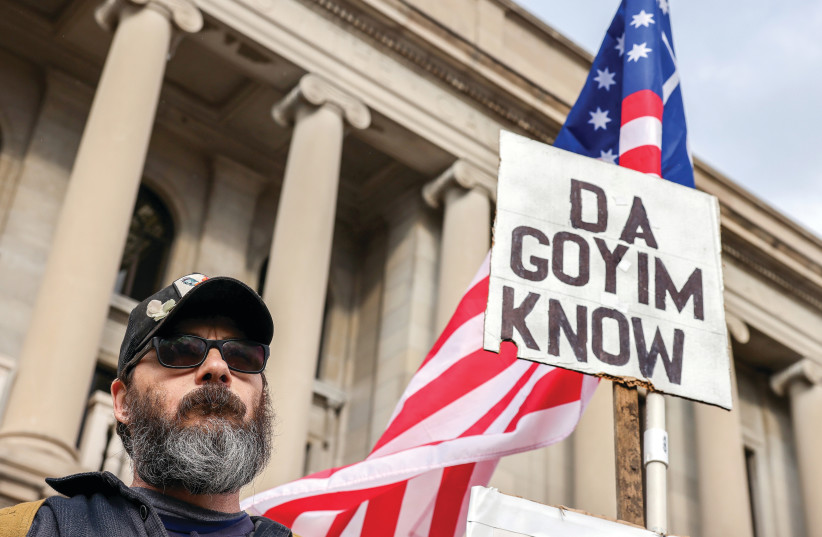Anti-Israel incidents on US college campuses have almost doubled from the 2021-2022 academic year, with a new study from the Anti-Defamation League (ADL) highlighting disturbing trends, including explicit promotion of violence against Israel and intensified rhetoric against Zionism and Zionists.
The ADL’s latest report for the 2022-2023 academic year, published on Wednesday, registered 665 anti-Israel incidents, marking a significant uptick from the previous year. These incidents included nine instances of vandalism, 24 cases of harassment, 303 events, 326 protests/actions, and three BDS resolutions. The report highlighted that while physical assaults declined from one to zero and vandalism cases dropped from 11 to 9, there was a noticeable increase in harassment cases, going up from 19 to 24.
This surge is attributed to several factors, primarily the continued growth of the anti-Israel movement. One alarming trend is the overt support for US State Department-designated terrorist organizations and a brazen call for Zionists and their associated institutions to be excluded or dismantled. This aggressive stance is often coined as "anti-normalization," a complete rejection of any association with those who accept or support Israel’s existence.
Antisemitic incidents in spotlight
Several key incidents spotlight the growing radical anti-Israel sentiment:
- The Mapping Project, promoted by various Students for Justice Palestine (SJP) campus chapters, drew significant attention in June 2022. This online tool pinpoints the location of Boston-area Jewish organizations believed by the creators to be contributing to the "colonization of Palestine." Disturbingly, the site encourages the disruption of these organizations. ADL has since filed a lawsuit against the project's hosting service in Iceland.

- Resistance News Network (RNN), a radical anti-Zionist channel on platforms like Telegram and Instagram, advocates for violence against Israel. It showcases explicit support for terror organizations such as Hamas and Hezbollah and portrays violent imagery, including rockets targeting Israel. Numerous anti-Zionist student groups shared content from this channel.
- Jisr Collective, a social media channel and website, gained traction during summer 2022 among anti-Zionist activists. The platform openly rejected Israel’s existence, supported "armed resistance" from groups like Hamas and Hezbollah, and expressed a strong stance against "normalization."
According to the study, many SJP chapters embraced the narratives presented by RNN, Jisr Collective, and The Mapping Project. This suggests a growing acceptance of calls for violence against Israel and demands to eradicate Zionism within significant portions of the campus anti-Zionist movement.
A particularly disconcerting incident from August 2022 involved Berkeley Law SJP, which revealed that they had convinced various campus groups to adopt a bylaw refusing collaboration or sponsorship with anyone supporting Zionism. Such moves highlight a growing endorsement of anti-Zionist rhetoric across different sectors of the campus community.
Jonathan Greenblatt, ADL CEO, emphasized in a statement, “Young Jewish students enter college hoping for acceptance. But the disturbing rise in anti-Israel incidents and the vilification of their Jewish identities challenge this sense of belonging. Universities must stand up against this tide.”
